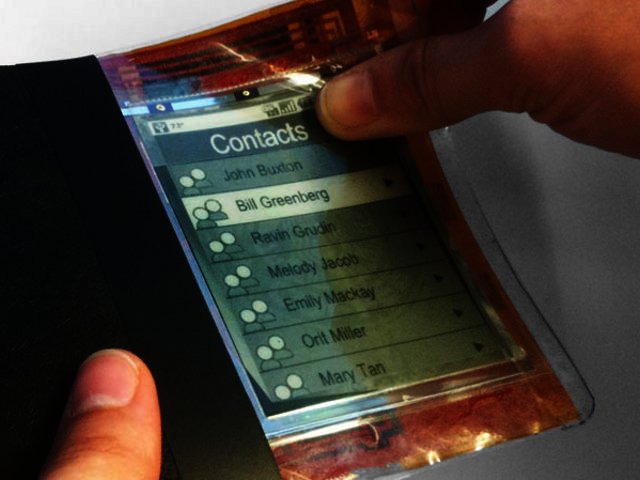Flexible computing on the horizon
By Johan Keyter 6 May 2011 | Categories: news
After some eight years of painstaking research and testing, researchers at Queens University in Ontario, Canada, have finally revealed what they claim to be the future of computing, and strangely enough, it lies in paper.
The researchers call it, “the world's first interactive paper computer”, and it's basically a computer built into a thin sheet of translucent paper, The Register reports. The technology used is called flexible e-ink, and enables not only the creation of super thin computers, but also allows users to issue commands by bending or twisting the piece of paper, like we would tap on a touch-screen today.
Creator Roel Vertegaal, the director of the university's human media lab said, “You can use it as an e-book reader, you can use it as a phone, you can use it as an MP3 player – it has all that functionality in it.”
Vertegaal also claims that, “everything is going to look and feel like this within five years.” He went on to explain the basics of the device saying, “This computer looks, feels and operates like a small sheet of interactive paper. You interact with it by bending it into a cellphone, flipping the corner to turn pages, or writing on it with a pen.”
The only issue at this stage is that although the screen is flexible, some of the electronic parts are still rigid, so it doesn't quite have the full freedom of movement of a regular piece of paper. “If this were a product, it would likely have a small rigid circuit on the left-hand side and then it would have the flexible display sticking out of that,” Vertegaal said.
The flexible film measures 95 mm and is capable of the same functions as modern smartphones. And as stated previously, the device won't contain any buttons, but rather includes what the lab calls “bend sensors” in a layer behind the display.
These sensors can detect and interpret bends in the page, as Vertegaal explained, “So you can bend the top in order to page forward or make a bookmark, you can navigate left and right on your home screen in order to open an icon, and you can make a call by squeezing the paper so that it curves, and then if you want to stop the call you pop it back into shape.”
The so-called Paperphone isn't the first demonstration of flexible film computers we've seen, but it definitely looks like one of the most advanced thus far. If Vertegaal's predictions are correct, in a couple of years we may be carrying our smartphone, tablet and notebook on a piece of paper, rolled up in our pockets.
Most Read Articles

Have Your Say
What new tech or developments are you most anticipating this year?



